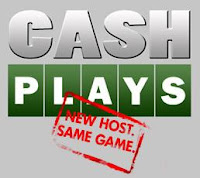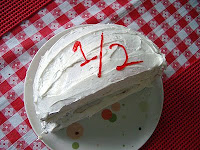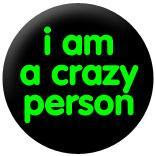On Riverboat Ron and Success Stress
Friends have asked me about the excitement level here in Charlotte regarding the team’s resurgence after four-plus years of disappointment. It’s funny today to look back to earlier in the season and how it genuinely appeared head coach Ron Rivera (in his third year at the helm) wouldn’t survive September after an 0-2 start.
They played the New York Giants during Week 3 at a time when it still wasn’t clear the Giants had a subpar team this year. (And when some of us might have even picked the Giants in certain pick’em pools, although there’s really no need to go back and research such things at this point.) A bye week was on the other side of that game, and most around here believed Rivera was toast should the Panthers have lost that won.
They won 38-0, then came back from the bye week to lose 22-6 versus Arizona in a dreadful performance. It looked bad, like having lost three-fourths of our starting stack by the second level bad. But we doubled up (so to speak), winning easily the next week against Minnesota. And now we’ve doubled a couple of more times and are challenging for the chip lead with the final table in sight.
So what do I say when those friends ask how we Panthers fans feel about all of this? I say we’re not getting too excited just yet. In fact, I’m personally full of trepidation about the whole situation. I look at those “Team Efficiency Ratings” from Football Outsiders my buddy Rich Ryan likes to reference in his Pigskin Diaries columns, see my Panthers now rated third in the entire NFL (behind Seattle and Denver), and I’m pretty much full of dread.
One explanation for the reaction stems from what happened back in 2008 -- the last time the Panthers were an above-average team -- when they cruised into the playoffs with a 12-4 record, then plummeted mightily in a 20-point first round loss to Arizona, the game the franchise’s former hero, Jake Delhomme, threw five interceptions and more or less bid farewell to Carolina.
Another reason, though, relates to the same irrational feeling of unease that some occasionally feel when winning at poker. I’m talking about that strange desire to protect against losing what you have already won, such as when you’re up in a cash game and start thinking about walking away a winner rather than continuing to play in a situation that is more likely than not a good one for you (as suggested by the fact that you’ve been winning). Or when a player unused to accumulating lots of chips in a tournament suddenly wins a couple of huge pots to take a big chip lead halfway through the event, then turtles up, not knowing how to proceed with the big stack.
Many who write about various forms of “tilt” talk about how winning tends to lessen one’s propensity to tilt, although it can introduce other problems. In The Poker Mindset, for instance, Ian Taylor and Matthew Hilger point out how “players are considerably less likely to go on tilt when running well than when running badly,” although other “pitfalls” such as overconfidence, unrealistic expectations, and laziness can arise to chip away at or erase entirely one’s profits.
To that list I’d add another pitfall that I guess would have to be called “contentment.” You know, the kind of feeling that causes some to become strangely passive at a time when it is probably worst to do so.
As far as the Panthers go, I’m hoping they continue to play aggressively and take those calculated, well chosen risks that have now earned Rivera the nickname “Riverboat Ron” -- a hilarious moniker, actually, for those of us who got to know Rivera as more risk-averse than Tighty McTighterson who hates entering hands with less than pocket kings -- and not revert back to the cautious, play-not-to-lose mode with which they started the season (and which I was already complaining about after Week 1 in a post titled “Passive, Not Passing”).
Anyhow, that perhaps partly explains why winning eight games in a row makes me more uneasy than going 4-4 or 0-8. Not to mention why I never rose above recreational status as a poker player, too.
Labels: *the rumble, Carolina Panthers, football, Ian Taylor, Matthew Hilger, NFL, Ron Rivera, The Poker Mindset









 in the cutoff. Player to my right, Laurel, raises. I three-bet. Folds to Hardy in the big blind who cold-calls, and Laurel calls as well. Flop comes a worrisome
in the cutoff. Player to my right, Laurel, raises. I three-bet. Folds to Hardy in the big blind who cold-calls, and Laurel calls as well. Flop comes a worrisome 

 . Laurel checks, Hardy bets, I raise, and both call. The turn is the
. Laurel checks, Hardy bets, I raise, and both call. The turn is the  , and when both check I overcome my passive-tilty-what-if-I’m-beat fretting and bet. Both call.
, and when both check I overcome my passive-tilty-what-if-I’m-beat fretting and bet. Both call. . Passive tilt or not, I ain’t gonna be raising anymore on this one, I don’t think. Laurel checks, Hardy bets, I call, and Laurel check-raises. Ugh. Hardy just calls, though, so I only have to sacrifice one more bet to see this through, which I do.
. Passive tilt or not, I ain’t gonna be raising anymore on this one, I don’t think. Laurel checks, Hardy bets, I call, and Laurel check-raises. Ugh. Hardy just calls, though, so I only have to sacrifice one more bet to see this through, which I do. 
 . A boat on the river. Hardy shows
. A boat on the river. Hardy shows 
 . A straight. Neat. I’ve finished the hand in third place. I don’t bother to figure out what-outer it took to beat me. Neither do they.
. A straight. Neat. I’ve finished the hand in third place. I don’t bother to figure out what-outer it took to beat me. Neither do they.










 . No flush draws. Not much in the way of straight draws, although someone could have a Broadway wrap. I have top and bottom pair. I checked, and the cutoff -- the original raiser -- checked as well. Then the button bet $6 into the dry side pot.
. No flush draws. Not much in the way of straight draws, although someone could have a Broadway wrap. I have top and bottom pair. I checked, and the cutoff -- the original raiser -- checked as well. Then the button bet $6 into the dry side pot.

 to my
to my  came on the turn, improving me to a whopping 10%. And the
came on the turn, improving me to a whopping 10%. And the 












